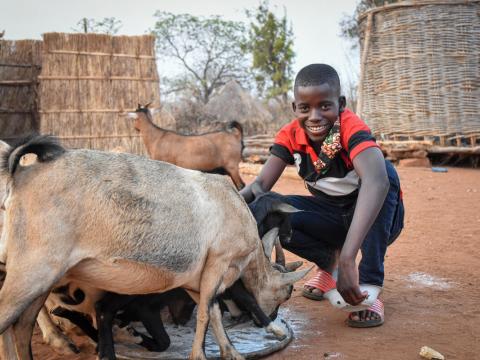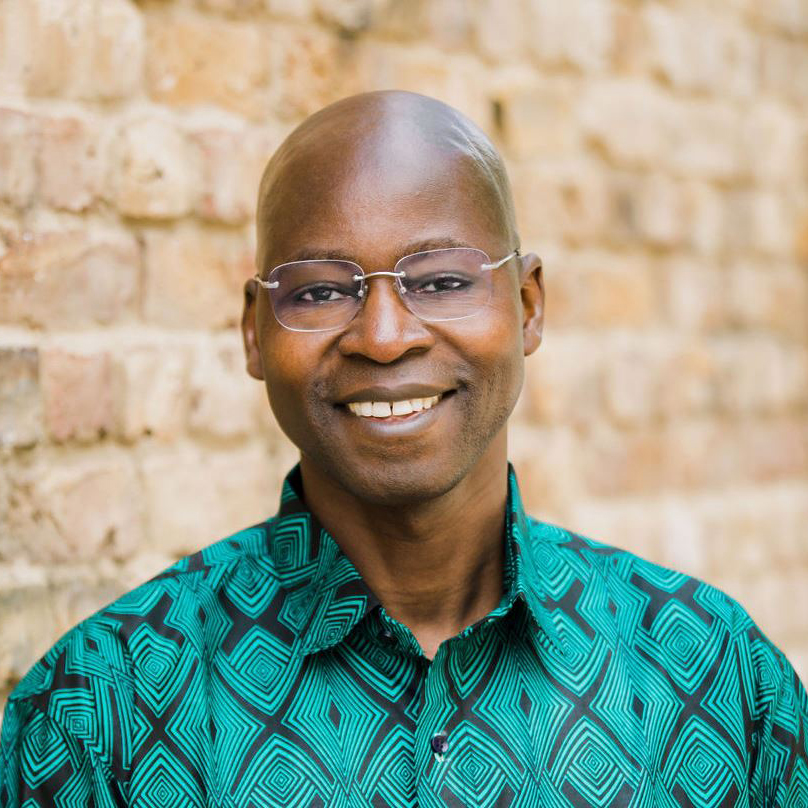
Why I take poverty personally
By Dr Jean Baptiste Kamate
I don't get stressed easily. I think life is a blessing so I try to manage every situation with that attitude. But there is one underlying issue that I can never get away from, nor ever feel comfortable about.
I read an article recently talking about the huge gaps in humanitarian funding around the world. While the point the article was making was important, it seemed to me to be missing a far bigger point. It assumed that we see people who live in poverty as lacking something, and those with money – be it governments or individuals – as having something to give. As if donor funding and humanitarian needs are a transaction to be negotiated and brokered.
What this overlooks is that poor people have something to offer that someone who is not poor cannot. Those who have survived poverty have lived through circumstances that others could not. I know this because my father was one of them. Sick to the point of near death in his small village in West Africa, as a teenager he said ‘I’m not going to sit here and die’. He left his village and his family, walked for miles, begged for food and drink, until he reached a bigger town where he made a life for himself, going to school at night, learning to be a mechanic. He taught me and each of my 9 brothers and sisters a passion for life and to strive, always, for excellence.
He broke the cycle of grinding poverty that afflicted his family and all those he grew up with. It’s because of him that I believe there is something magic about the poorest people in the world, and if you involve them in creating solutions, we will sustain and win the fight against poverty.
It is a fight that will be won by the poor, not the rich and the donors. Can they do it alone? Of course not, which is why World Vision and other organisations exist, but they need to be empowered to be a driving force for what has to be done, to transform, to create a better environment where children can survive and thrive.
I struggle, as many do, with the levels of poverty in the world, and particularly with the wealth gap between those who literally don’t have anything, and those who have so much. It is beyond me to feel comfortable with the reality that in the end, those who have so much decide for those who don’t have anything.
It doesn’t matter how we dress it up or what we tell ourselves; those who have nothing didn’t do anything to deserve their position or situation. And the same goes for those who have everything.
Those who make decision for others, those who live lives of privilege and wealth, aren’t in their positions simply because of education, or working hard. Sometimes it’s historical, they grew up in families who had done well, and inherited it. Mostly it’s pure luck of where you were born, and when.
So the burning question, the one that I am driven by, is how do we create a world where everyone has a chance to live a decent life? Where the circumstances of their birth do not determine whether they make it past the age of 2, or are forced to beg from cars sitting in traffic, or made to marry before they reach their teenage years?
I’ll admit I’m biased. I am biased in favour of people in need, and this informs how I relate and how I make decisions. When I look at a budget for a programme, or a fundraising goal, I will think how much does this translate to – cash budget of a country, children we can serve.
What more can we do with what we have? How can we make the world more equal? More fair?
JBK is World Vision’s Partnership Leader for Global Field Operations. Follow JBK on Twitter @jb_kamate

